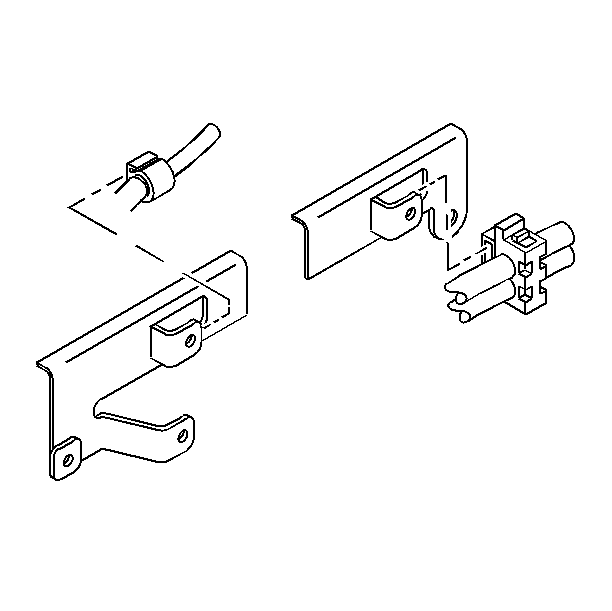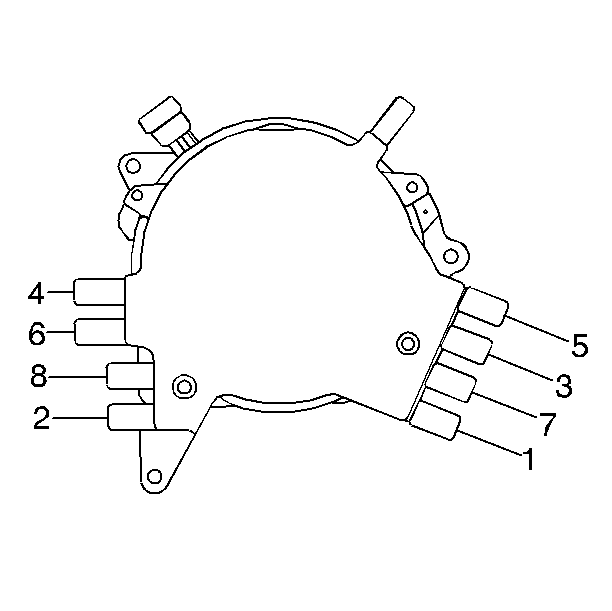Removal Procedure
- In order to correctly route the wire during installation note
the locations of each of the following components:
- Disconnect the negative battery cable. Refer to
Caution: Unless directed otherwise, the ignition and start switch must be in the OFF or LOCK position, and all electrical loads must be OFF before servicing
any electrical component. Disconnect the negative battery cable to prevent an electrical spark should a tool or equipment come in contact with an exposed electrical terminal. Failure to follow these precautions may result in personal injury and/or damage to
the vehicle or its components.
in General Information.
- Remove the harness from the spark plugs.
| • | Twist the boot ½ turn before removing. |
- Remove the harness from the distributor.
| • | Twist the boot ½ turn before removing. |

- Remove the harness from the clips.
Inspection Procedure
- Inspect the spark plug gap. Adjust as needed.
- Inspect the spark plug wires for any obvious cuts, burns, or damage.
- With the engine ON, inspect for any arcing to ground or other
components.
- Connect an ohmmeter to the end of each suspect wire. If the meter
reads over 30,000 ohms, replace the wire.
Installation Procedure
- Route the wires in the correct routing location as noted during
the removal procedure.

- Install the harness to the wire harness
clips.

- Install the harness to the distributor or the coil as well as to the correct
spark plug.
- Ensure that the boots are installed correctly by completing the
following steps:
| • | Push sideways on the installed boots. The boots should be stiff
with only slight looseness. |
| • | If the boot feels loose, reset the boot by twisting ½ turn,
pulling the boot off, and reinstalling the boot. |
| • | Connect the negative battery cable. |
Tighten
Tighten the negative battery cable to 15 N·m (11 lb ft).
Refer to the
Notice: Use the correct fastener in the correct location. Replacement fasteners
must be the correct part number for that application. Fasteners requiring
replacement or fasteners requiring the use of thread locking compound or sealant
are identified in the service procedure. Do not use paints, lubricants, or
corrosion inhibitors on fasteners or fastener joint surfaces unless specified.
These coatings affect fastener torque and joint clamping force and may damage
the fastener. Use the correct tightening sequence and specifications when
installing fasteners in order to avoid damage to parts and systems.
in General Information.



